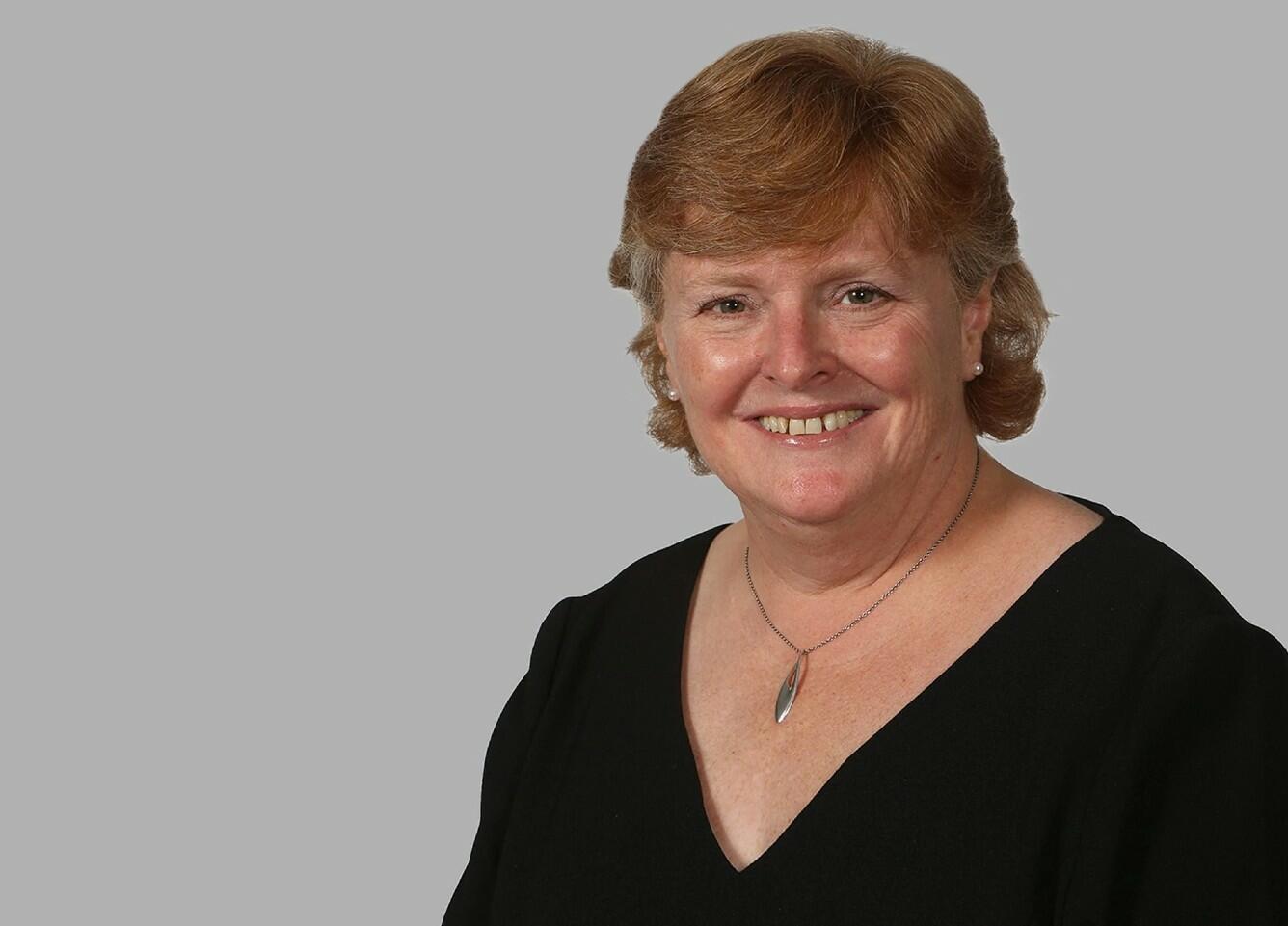
Trustees' Week is an opportunity to celebrate the achievements of nearly one million trustees across the UK.
During Trustees' Week, Liverpool School of Tropical Medicine will be sharing the stories of three of our Board of Trustees, the body that exercises governance of the institution.
Hear below from Vice Chair Sue Russell, an experienced solicitor and Legal Director at Hill Dickinson, who explains how the quality of LSTM's research and the daily significance of its work inspire her role as a trustee.
Why did you decide to become a trustee of LSTM?
I was approached to be a trustee, and specifically to chair the audit committee, against my background of being a corporate lawyer with many years’ experience of corporate governance. That expertise comes both from giving advice to clients and sitting on other boards. The audit committee looks at the risks, not just the financial risks, that could affect LSTM and seeks reassurance, through evidence, that appropriate steps are being taken to mitigate those risks. Organisations like LSTM, which is both a research-led higher education institute and a charity in its own right, rely on volunteers donating their time as trustees.
I felt that I could make a meaningful contribution to LSTM in this role and although it sounds a bit hackneyed it is genuinely rewarding to be able to give something back to an institution that does so much through its research to improve health outcomes in disadvantaged populations globally, through partnership in research and education.
Can you share a personal story or experience that inspired your commitment to LSTM's mission and work?
One of LSTM’s priority research areas is in vector-borne diseases. The ‘vector’ is the carrier of the disease – think mosquitoes or tsetse flies. LSTM research looks both at deterring the vectors and treating the diseases. One of the solutions that LSTM is involved with is more effective insecticide-treated bed nets. I recently heard a story about a woman in Kenya who was explaining just how important such bed nets are for getting a good night’s sleep. It’s very difficult to imagine what it is like not to be able to get a good night’s sleep - something we all take pretty much for granted - due to being constantly bothered by insects that might transmit a life-affecting disease, and that something as simple as an insecticide-treated bed net to sleep under can make such a fundamental difference.
LSTM is known for its impactful work in tropical medicine and global health. Could you describe a specific project or initiative that you find particularly compelling, and why it resonates with you as a trustee?
One of the things I learned at the very outset of my time as a trustee is how poor health contributes to poverty. If you are in a community that does not have easy access to affordable healthcare and you become ill, you are unable to go to school for the education you need or to work. If you have to take time off to attend medical appointments, you miss your education or if you’re working you don’t get paid. You then have the additional expense and time of traveling for treatment and if you can’t work and earn money you can’t buy decent food or pay for medical help. It becomes a downward spiral. So preventative health solutions become not just important but essential. In other words - better health solutions can start to alleviate poverty.
I’d also like to mention iiCON, which stands for the Infection Innovation Consortium. Formed and led by LSTM, it’s a collaborative programme that brings together industry, academia, and clinicians to accelerate the discovery, development and deployment of new treatments and products – saving and improving millions of lives through collaborative innovation. It’s the creativity, the entrepreneurial and partnership aspect of this that resonates with me.
As a trustee, you play a crucial role in shaping LSTM's strategic direction. What aspects of LSTM's mission and goals align with your own values and vision for making a positive impact in global health?
That’s easy - equal opportunity in life. It seems really unfair that the accidental geography of your birth should have the potential to have such a profound effect on your life chances. So anything that can be done to improve or make a positive change to those life chances to make them more equitable – whether you are born in the Global South or Liverpool – has to be a winner.
Trustees often have a unique perspective on an organisation's impact and growth. In your view, what makes LSTM's work stand out, and what do you believe are the most significant contributions LSTM can make to address global health challenges?
There are two questions in one there! What makes the work stand out to me is its daily relevance, whether that’s in the field of antimicrobial resistance looking for new antibiotics to replace those that no longer work, working in the field of Covid-19, not just on new vaccines but on combinations of existing drugs to assist recovery, or in the field of tuberculosis in the Global South, which has also translated back into other medical fields in the UK.
I’d struggle to sum up the most significant contribution to global health challenges because in my view there are so many, but if I had to pick one I’d say the outstanding quality of the research being carried out here, on our doorstep, in Liverpool as acknowledged by our recent ranking in the UK’s Research Excellence Framework - which is the UK’s system for assessing the excellence of research in UK higher education providers.
Read more from our trustees, including Chair Jim McKenna and Nyovani Janet Madise.